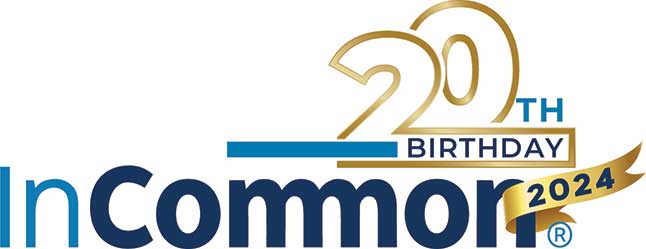As we continue to celebrate InCommon’s 20th birthday this year, we can focus on its continued impact on the research and higher education (R&E) community.
To discuss how InCommon has impacted researchers on campus, as well as how researchers can utilize eduroam away from their institutions, I sat down with Lois Brooks, vice provost for Information Technology and CIO at the University of Wisconsin-Madison.

Brooks joined UW-Madison in August 2018, following her tenure as vice provost for Information services and CIO at Oregon State University. She also co-founded the Sakai Foundation during her time at Stanford University, where she served as the director of Academic Computing.
Throughout her career, Brooks has served in leadership and governance roles with Internet2, including chairing the InCommon Steering Committee in 2010, where we worked together as I served as her co-chair. Brooks further served on the EDUCAUSE Learning Initiative, the Northwest Academic Computing Consortium, and Unizin.
I was lucky to sit down with Brooks at the Internet2 2024 Community Exchange for a brief chat. We discussed various topics covering the research community’s relationship with InCommon, including enhancing connectivity, ensuring secure internet access, and enriching the collaborative research environment.
Kevin: University of Wisconsin-Madison has been a really important force in the development of InCommon. How has InCommon been important to the University of Wisconsin-Madison and other institutions?
Lois: You know, as a big research university, it’s absolutely instrumental in our ability to conduct inter-institutional research. But there’s actually been a hidden benefit that may not get talked about as much, and that is the IT staff end up in deep conversations with the faculty about the research because of InCommon.
We’ve really gotten to know the faculty, their research needs, and the research trends at the university. InCommon has given us that avenue for these conversations, making us much more connected.
Kevin: How have you benefited from InCommon on an individual level?
Lois: I travel a lot for work and, personally, and it’s been absolutely amazing to have secure access from wherever I am. It is certainly on another college campus, but I have also found eduroam, based on the same founding principles as InCommon, in unexpected places. It knows me, who I am, and provides me secure access to the internet from wherever I happen to be. It has just been fantastic.
Kevin: Everybody has got a story like that, and I love hearing them. If an Information Technology Genie were to grant you three wishes, and one of those wishes had to be for InCommon, what would that wish be?
Lois: I think the value of InCommon is that it is so connected. So, my wish would be for InCommon to grow. The more InCommon expands its number of federations and members, the more all of us benefit from that.
Kevin: When you think about InCommon, which three words best describe it?
Lois: Federation; ease-of-use — which is more than one word; and friends because I’ve made so many friends in this community over the years.
As Lois highlights, InCommon’s impact goes beyond technological advancements. InCommon is all about building a connected, collaborative, and secure environment for the R&E community.
We look forward to InCommon’s next chapter with optimism, striving for growth so it can play an even larger, more transformative role in higher education.
